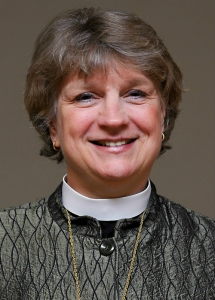 By Bishop Ann Svennungsen
By Bishop Ann Svennungsen
In the past seven days, I presided at three ordinations. I’m pretty sure that’s a record for me as bishop. Two men and a woman; two full-time and one half-time; two younger and one mid-career; one called to a rural community, one to a suburb, one to the city. All with wonderful gifts to share, a deep sense of call, and solid formation in faith and theology. What a week to feel hopeful about leadership in the church.
Nearly 20 years ago, I was invited by the Lilly Endowment to be a member of “The Pastors Working Group,” a cohort of 12 pastors from various denominations and parts of the country who met for 20 days over 18 months. We gathered to explore pastoral excellence or what we came to call “the pastor imagination.”
“Our Pastors Working Group was one means to help the endowment understand the contours of the pastoral calling – and the characteristics needed to be effective pastors.”
Lilly Endowment had received a significant influx of resources (read: Prozac) and was prioritizing its use. They came to understand that – to strengthen the future of American Christianity – the best place to invest was in the calling, formation, and support of pastors. Our Pastors Working Group was one means to help the endowment understand the contours of the pastoral calling – and the characteristics needed to be effective pastors.
We worked with the Rev. Dr. Craig Dykstra, then head of the Lilly Religion Division. I am forever indebted to his wisdom and investment in my own ministry. And I’ve not forgotten his suggestion that the work of the pastor may just require a greater multiplicity of intelligences than any other profession: left brain, right brain, analytic, artistic, kinesthetic, interpersonal, and linguistic.
I’VE OFTEN THOUGHT THAT describing the diverse and wonderful challenges of ministry – and the many intelligences needed – would be sufficient to inspire a person to explore this calling. Sadly, that isn’t the case. Still, what is more tragic are the number of young people in our synod who haven’t even been encouraged to explore this calling.
Ask any of the three people I ordained last week and they will tell you about a person(s) who tapped them on the shoulder, who encouraged them to explore this calling. “You would be a great pastor,” they might say. In some parts of our church, there is only one first-call pastor available for every two congregations looking to call one. And, throughout the church, the need for gifted, diverse, and faithful pastors remains strong.
When is the last time you tapped someone on the shoulder? Maybe you could make that a goal for yourself in the next seven days.

